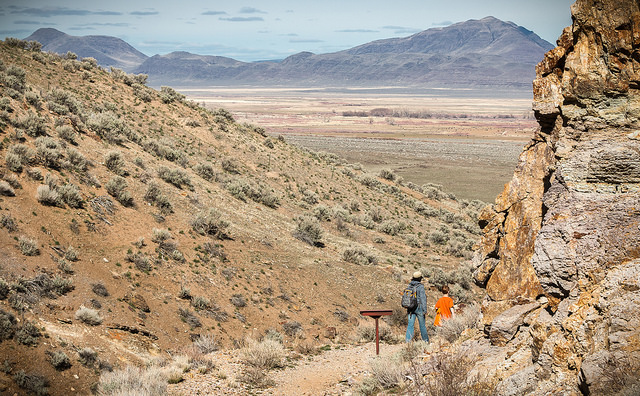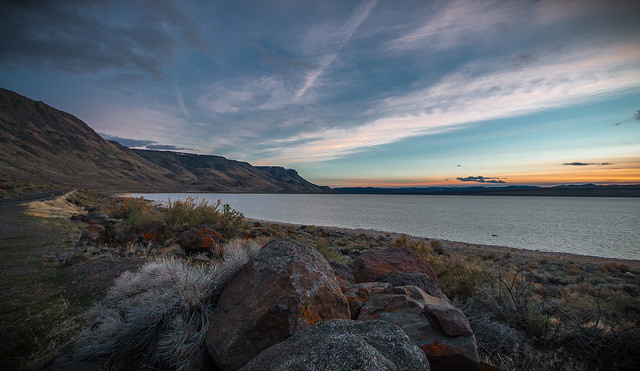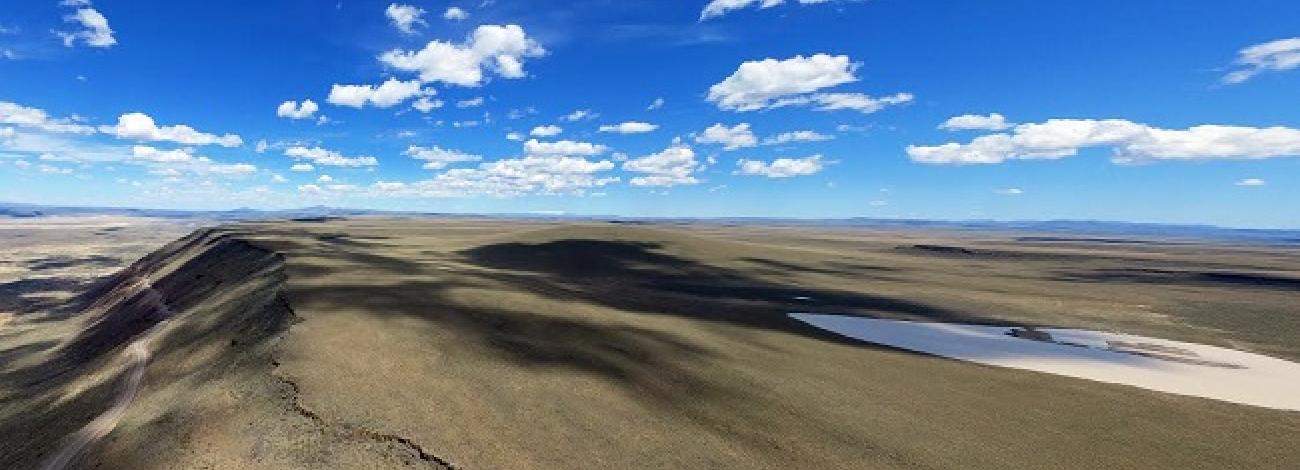
Hampton Butte Wilderness Study Area
The Hampton Butte and Cougar Well Wilderness Study Areas (WSA) are in Crook and Deschutes County, approximately 60 miles southeast of Bend, Oregon, and about 180 miles southeast of Portland, Oregon. U.S. Highway 20 is less than 4 miles south of the study areas.
The Hampton Butte WSA (OR-5-42), immediately to the west and separated from the Cougar Well WSA (OR-5-43) by a BLM maintained road, is an irregular shaped unit. There are 10,600 acres of BLM land in the WSA. There are 160 acres of private land at the end of a dead-end road in the Hampton Butte WSA.
Boundaries on all sides of the Hampton Butte WSA are formed by a combination of BLM-maintained roads and private property. One dead-end road enters the Hampton Butte WSA for 1.4 miles, forming part of the boundary.
Juniper covered buttes are scattered throughout the WSA. The landscape rises gently to the north toward Hampton Buttes located just outside of the WSA. Dense stands of juniper dominate the southern and eastern portions with an understory of sagebrush, rabbitbrush and Perennial water is provided by several springs in the WSA.
The WSAs were studied under Section 603 of the Federal Land Policy and Management Act and were included in the Final Oregon Wilderness Environmental impact Statement (EIS) filed in February 1990.

